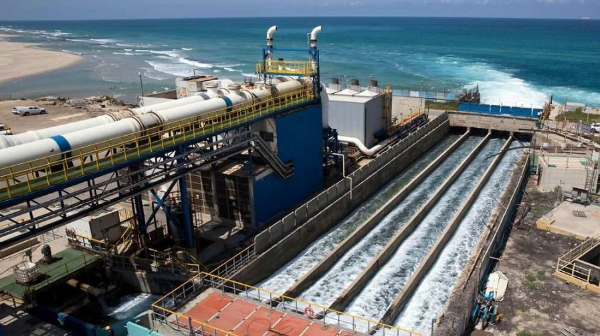Winds of Change in Southern Morocco
In the windswept southern province of Dakhla-Oued Eddahab, a groundbreaking project is taking shape—one that could reshape Morocco’s agricultural landscape while safeguarding its natural resources. The Dakhla Seawater Desalination Plant, set to be entirely powered by wind energy, promises to deliver clean water, boost food security, and generate thousands of jobs.
During a recent high-profile visit, Agriculture Minister Ahmed El Bouari described the facility as a “pioneering project in sustainable development”, citing its environmental, economic, and social impact.
Sustainability at the Core
Expected to produce 37 million cubic meters of water annually, the plant’s output will serve dual purposes:
- 30 million cubic meters will irrigate 5,200 hectares of farmland
- 7 million cubic meters will supply drinking water to Dakhla city and the future Atlantic port
“This is a landmark project—environmentally sustainable, socially inclusive, and economically transformative,”
— Ahmed El Bouari, Minister of Agriculture
What makes the project even more impressive is that it’s being entirely powered by a 60-megawatt wind farm, cementing Morocco’s role as a renewable energy leader in Africa.
Empowering the Youth Through Agriculture
The desalination project is more than just infrastructure—it’s a launchpad for a new generation of agri-entrepreneurs. Of the 219 farms to be equipped, 100 will be allocated to young farmers from the region.
This initiative aligns with Morocco’s broader efforts to empower youth, with El Bouari announcing the creation of over 25,000 permanent jobs linked to the project. With a public-private investment of MAD 2.6 billion (≈ $260 million), the project stands as one of the most ambitious agri-tech developments on the continent.

Revitalizing Markets and Maritime Industries
As part of the visit, El Bouari inspected major infrastructure upgrades:
- A new wholesale market and local fruit and vegetable market (90% complete)
- A seafood processing facility with 140 tons/day capacity and 500 job prospects
- A MAD 127 million investment fostering circular economy practices—fish oil and meal production
Secretary of State for Sea Fishing Zakia Driouch declared:
“Dakhla is now establishing itself as a national hub for seafood product development, with a growing industrial ecosystem.”
Next-Gen Fisheries: Innovation Meets Safety
In the fishing sector, innovation isn’t just industrial—it’s personal. A new radio beacon program, funded with MAD 20.6 million ($2.2 million), will enhance the safety and working conditions of 6,183 artisanal fishing boats, including 3,207 in Dakhla.
Meanwhile, a small pelagic fish project—budgeted at MAD 1.16 billion ($125 million)—will establish six industrial units, aiming to generate 4,378 jobs and increase local value addition.
A Gateway to Africa’s Future
The transformation in Dakhla is part of Morocco’s strategic commitment to turn its southern provinces into regional powerhouses. By prioritizing clean energy, agricultural resilience, and blue economy innovation, Morocco is setting a global benchmark for integrated rural development.
With its eyes on food security, job creation, and international competitiveness, Dakhla is rising—and the rest of Africa is watching.
QUICK FACTS
- 💧 37 million m³/year water production
- 🌬️ 60MW wind farm for clean energy
- 🧑🌾 5,200 hectares irrigated farmland
- 👨👩👧👦 25,000+ jobs created
- 💼 MAD 2.6B total investment
- 🐟 6 seafood units & 4,378 jobs from fisheries program